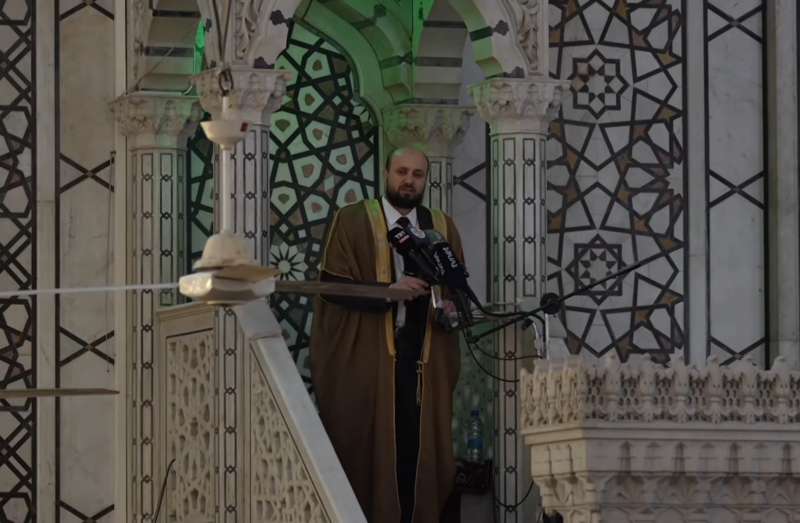The End of a Nightmare: Assad Regime Falls After 13 Years of Civil War
'"Assad’s regime is finished in Syria – this is the biggest happening in the world." - Alhakim Marwan who fled Syria in 2012.'

by Arthur Searle, Staff Writer, PPE 03/02/2025
In a historic upheaval, the Bashar al-Assad regime collapsed on 8 December 2024, ending the 13-year civil war in Syria. A swift offensive led by Hayat Tahrir al-Sham (HTS) and allied rebel forces saw them capture Aleppo and storm Damascus in just 11 days. Assad’s resignation marked the end of 54 years of Assad family rule in Syria.
While celebrations erupted globally, especially among young refugees, Syria’s situation remains uncertain, requiring cautious optimism as the nation faces the challenge of rebuilding itself under a leadership with unclear motivations.
On 27 November 2024, a coalition of Syrian opposition groups led by HTS launched a surprise offensive against pro-government forces in northwestern Syria. Within three days, the rebel forces seized control of Aleppo and continued their rapid advance across the country, eventually reaching the capital, Damascus. Assad stepped down and fled to Moscow, Russia, where he was granted asylum, marking the beginning of a new political era in Syria.
On 10 December 2024, the Shura Council of the Salvation Government appointed Mohammed al-Bashir, a Syrian engineer and politician, as interim Prime Minister of the Transnational Government. However, HTS leader Abu Mohammad al-Jawlani holds significant influence in Syria’s post-conflict governance, giving the impression that he is the de facto leader of Syria.
Assad assumed power in Syria in 2000, succeeding his father, Hafez al-Assad, who had ruled for three decades. The regime became synonymous with authoritarianism, horrific human rights abuses, and reliance on a tightly controlled security apparatus. Its brutality was epitomised by the 2013 sarin gas attack on Eastern Ghouta, which killed over 1,400 people, including women and children. This attack was one of the deadliest chemical assaults of the 21st century and shocked the world.
The regime was notorious for forced disappearances, mass detentions and imprisonment of tens of thousands in places like Sednaya prison, labelled as a “human slaughterhouse”, where approximately 13,000 people were executed between 2011 and 2015.
The Syrian Arab Spring began in 2011, sparked by the arrest and torture of schoolboys for anti-regime graffiti in Daraa. What started as peaceful protests demanding reform escalated into a nationwide uprising, met with live ammunition, mass arrests, and the shelling of residential neighbourhoods by the military. The violent response fueled greater resistance, plunging the country into a devastating 13-year civil war.
The conflict displaced 13.5 million people, more than half of Syria's pre-war population, creating one of the largest refugee crises in modern history. Turkey alone hosts over 3.7 million refugees. Despite the immense challenges, the regime’s collapse has brought cautious optimism.
HTS, or the Organisation for the Liberation of the Levant, is an Islamic militant group. Originally evolving from earlier jihadist organisations, including Al-Qaeda’s affiliate in Syria, it has since been trying to rebrand itself as a Syrian nationalist movement with governance ambitions. The U.S., UN, EU, and Turkey have all designated HTS as a terrorist organisation. While HTS has made efforts to gain legitimacy and improve its image by distancing itself from Al-Qaeda, most international actors remain sceptical due to their history of authoritarian governance, targeting civilians, and extremist roots.
Post-Assad Syria has drawn comparisons to Afghanistan under the Taliban, with concerns over militant groups governing and the challenges of achieving stability after years of conflict. HTS’s history of targeting civilians and suppressing dissent raises fears that its rule could mirror the authoritarian practices of the Assad regime. Similar to the Taliban, HTS struggles with legitimacy, with critics warning that its governance may prioritise ideological control over citizens' welfare. HTS has clashed with other opposition factions in the past, such as the Free Syrian Army (FSA) and Kurdish groups, but led the coalition to depose the Assad regime.
The regime’s collapse stemmed from internal vulnerabilities, external pressures, and strategic opposition moves. Years of conflict devastated Syria’s economy, an issue amplified by sanctions imposed by Western nations. Rampant corruption, desertions within the armed forces, and the overreliance on foreign militias further exposed the regime’s fragility.
Backed by Russia and Iran, Assad received significant military aid support from Moscow beginning in 2015, including air strikes and logistical aid. Russian intervention had been crucial in turning the tide in Assad’s favour during earlier stages of the civil war. Iran simultaneously provided funding, military advisors, and militias like Hezbollah, which played a key role in defending regime-held territories.
Yet, Russia’s preoccupation with the Ukraine conflict reduced its ability to provide military reinforcement, while Iran, facing economic strain and domestic unrest, could no longer sustain its strategic aid. This set the stage for HTS’s strategic coalition to capitalise on the regime’s weakness.
The fall of the Assad regime has sparked global celebrations, a reflection of the suffering it inflicted during its decades in power. Refugees have started returning, and diaspora communities, like those celebrating in London’s Piccadilly Circus, express optimism. Alhakim Marwan, who fled in 2012, declared, "Assad’s regime is finished in Syria – this is the biggest happening in the world." He added, "Inshallah, soon we go back to the country." Many now hope to return to their homeland.
International leaders have responded to the regime's collapse with a mix of relief and caution. European Commission President Ursula von der Leyen noted that it “offers opportunities but is not without risks.” UK Prime Minister Keir Starmer welcomed the end of Assad’s “barbaric regime,” while Foreign Secretary David Lammy announced a £50 million aid package to provide food, shelter, healthcare, and essential services in Syria. The UK also confirmed diplomatic contact with HTS, signalling its support for Syrians during this transition.



